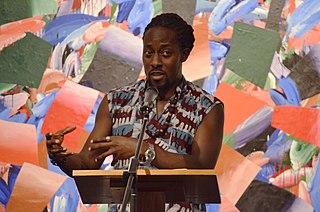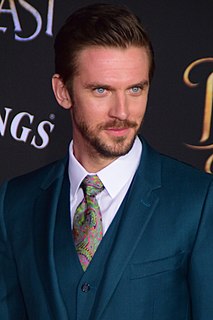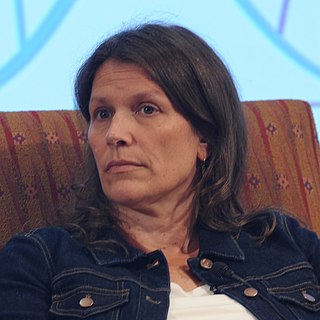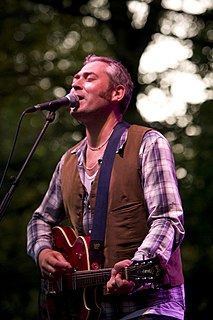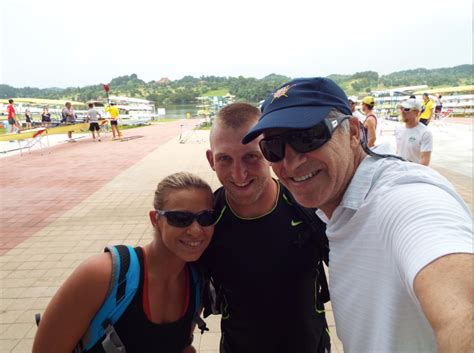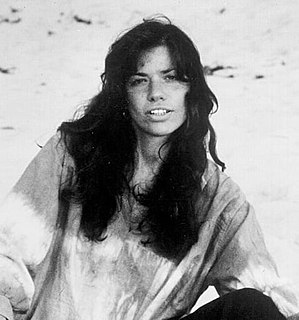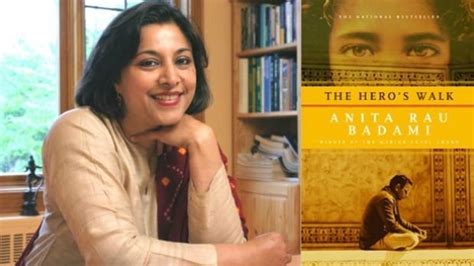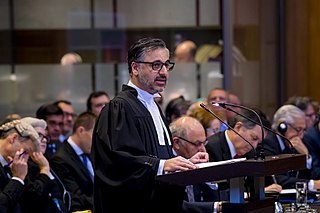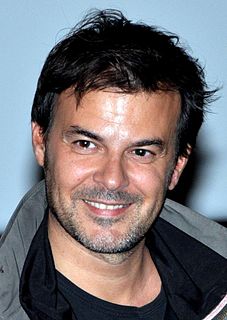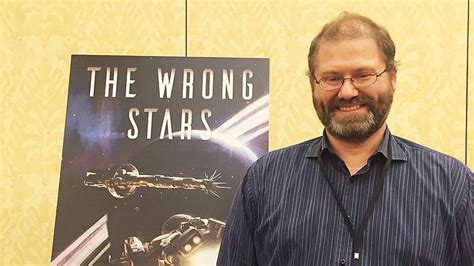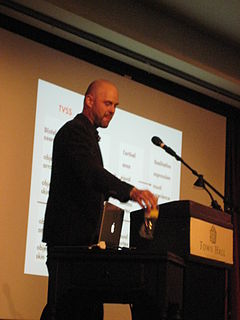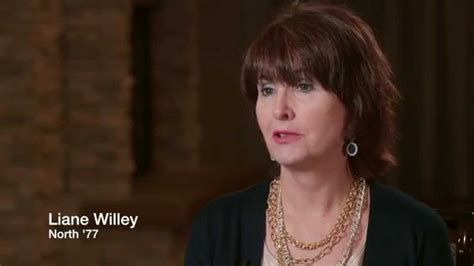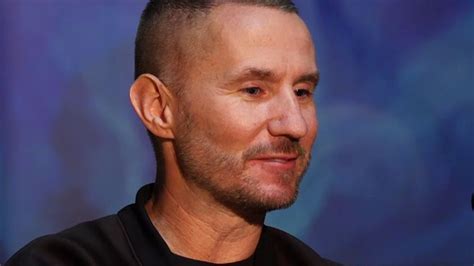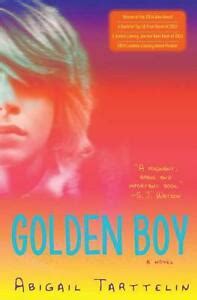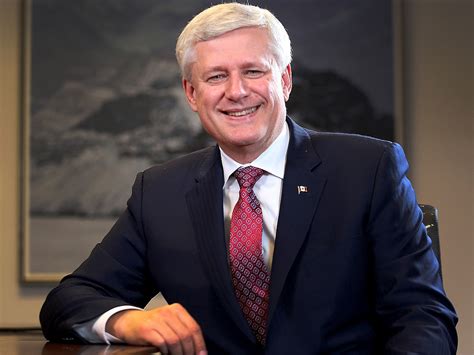Top 903 Exploring Quotes & Sayings - Page 15
Explore popular Exploring quotes.
Last updated on April 19, 2025.
Exploring Ecclesiology is true to its subtitle, being both vibrantly evangelical and admirably ecumenical; it is commendable for its depth, breadth, and erudition. Harper and Metzger's sympathetic engagement with Catholic ecclesiology is challenging and reciprocal. I especially appreciate how the authors emphasize and explore the vital connection between ecclesiology and eschatology, something very beneficial to readers seeking to better appreciate how living the Faith in community today relates to the hope of entering fully into Trinitarian communion in the life to come.
An up-close portrait of middle-class Nigeria exploring the boundaries of morals and public decorum. Pitched between humor and despair, with stripped-down, evocative prose, A Bit of Difference bristles with penknife-sharp dialogue, but its truths are more subtle, hiding in the unspoken. Ultimately, A Bit of Difference explores – with a hint of mischief–the problem of how to look like you have no problems when you have abundant problems–the universal problem of the socially-motivated classes.
The whole point of science is that most of it is uncertain. That's why science is exciting--because we don't know. Science is all about things we don't understand. The public, of course, imagines science is just a set of facts. But it's not. Science is a process of exploring, which is always partial. We explore, and we find out things that we understand. We find out things we thought we understood were wrong. That's how it makes progress.
It is a bit more challenging for the simple fact that now the stories I am writing are relying more on my imagination than on facts, more on research than on memory; so it is basically a slower writing process, more reading, more exploring. On the other hand, this approach is a little bit relieving too, since many times while writing [How the Soldieer Repairs the Gramophone] I felt too close and equal to my character.
Each of us is born with two contradictory sets of instructions: a conservative tendency, made up of instincts for self-preservation, self-aggrandizement, and saving energy, and an expansive tendency made up of instincts for exploring, for enjoying novelty and risk-the curiosity that leads to creativity belongs to this set. But whereas the first tendency requires little encouragement or support from outside to motivate behaviour, the second can wilt if not cultivated.
How much time have you invested in thinking about strategy? How many options have you considered before the plan was written? How have you ensured that the thinking behind the plan is challenged? How much time do you spend exploring trends, possibilities and cool stuff? How much time is spent playing with ideas, hopes and dreams?
I've been exploring a lot of different avenues with a number of very different and very, very exciting filmmakers and writers. That's been the trip. I like to find something very, very different from the last thing I did, which might be similar to something I've done before, but as long as it's different from the last thing I did, it keeps me entertained.
But more classrooms and more teachers are not enough. We must seek an educational system which grows in excellence as it grows in size. This means better training for our teachers. It means preparing youth to enjoy their hours of leisure as well as their hours of labor. It means exploring new techniques of teaching, to find new ways to stimulate the love of learning and the capacity for creation.
I was thinking a lot about myself and my own super inextricably Jewish boy link with my mother. I felt like even a Jewish spy would have this relationship, so yes, I was very much exploring this relationship of boys and their mothers, and Jewish boys and their mothers. Exactly that, the ridiculous lengths that a doting mother will go for her son, and the ridiculous lengths that - I will pretend this is distanced from me - the ridiculous neediness of a grown man for a mother.
Anarcho-capitalism, in my opinion, is a doctrinal system which, if ever implemented, would lead to forms of tyranny and oppression that have few counterparts in human history. There isn't the slightest possibility that its (in my view, horrendous) ideas would be implemented, because they would quickly destroy any society that made this colossal error. The idea of 'free contract' between the potentate and his starving subject is a sick joke, perhaps worth some moments in an academic seminar exploring the consequences of (in my view, absurd) ideas, but nowhere else.
And if you're a parent who thinks you're okay because your kid doesn't have a phone or iPod yet, and/or you've used all the parent controls to filter out explicit material, you're not okay. The filters are tissue paper and your kid without a phone is on a school bus or in a locker room or at a public park with phone-equipped kids every day. And they're like all kids in exploring - by whatever means available to them - exactly what their parents are treating as too embarrassing or taboo to talk about.
I found a deep kinship between Mahler's recurrent attempts to confront all sides of life and to affirm himself in the face of his own finitude, and Aschenbach's dedication to persevere in the literary evocation of beauty. Exploring this kinship led me to reflect on many of Mahler's songs and symphonies - and particularly his great masterpiece, Das Lied von der Erde. The end result was a way of reading Mann that I hadn't originally anticipated at all.
What I'm interested in exploring with Clark Kent is when you have the power to do something that goes beyond what you think is the right thing to do and the difficulty of that. Meaning, to be Superman also means to withhold a lot of power. He could reshape the world however he thinks it should be. But Superman doesn't, historically, do those things. He allows a certain level of self-governing and a certain level of independence, I think out of an admiration for humanity. Because he's inspired by the best in us and he challenges us to inspire each other to be the best that we can be.
Have you ever longed for someone so much, so deeply that you thought you would die? That your heart would just stop beating? I am longing now, but for whom I don't know. My whole body craves to be held. I am desperate to love and be loved. I want my mind to float into another's. I want to be set free from despair by the love I feel for another. I want to be physically part of someone else. I want to be joined. I want to be open and free to explore every part of them, as though I were exploring myself.
On Girls I like being a mouthpiece for the issues I think young females face today. It’s always shocking when people question whether it’s a feminist show. How could a show about women exploring women not be? Feminism isn’t a dirty word. It’s not like we’re a deranged group who think women should take over the planet, raise our young on our own and eliminate men from the picture. Feminism is about women having all the rights that men have.
A child in his earliest years, when he is only two or a little more, is capable of tremendous achievements simply through his unconscious power of absorption, though he is himself still immobile. After the age of three he is able to acquire a great number of concepts through his own efforts in exploring his surroundings. In this period he lays hold of things through his own activity and assimilates them into his mind.
I'm still exploring. As I look back, Nénette Et Boni had a massive effect on the album we made after it, Curtains. I think it's been like that all the way through. Trouble Every Day had a massive effect on Can Our Love... I think it's allowed us to raise our heads, take a bit of a left turn, explore different avenues, and then come back to our own thing and see it in a different way.
The last great unknown, in terms of physiological training, is the optimum length of a piece. Is three minutes enough? Is ten minutes too much? No one knows. Perhaps someday the question will be answered-we'll find out that thirteen minutes is the perfect length for a training piece when preparing for a 2000 meter race. Until then, coaches will continue exploring the whole scale, up and down, from thirty seconds to sixty minutes and more, in hopes of capturing the optimum time.
I remember being a 12 year old art kid and feeling like there was no exciting art movement happening, especially for somebody like me. I was looking around for artistic inspiration and could find nothing — until my older brother’s friend brought a Giger book over to the house. Upon seeing the first image I knew I would never be the same. A whole new world opened up to me and I have been exploring it ever since. It’s no doubt that I would not be here today, doing what I do, without his influence. H.R. Giger is the king of the Dark Art movement.
So much of our conversation about love is possessive. "You are mine. And if you stop being mine, I will hate you." And so exploring non-possessive ideas of love and friendship is important. Which is not to say we should just break down monogamy, I'm not taking a simplistic point of view. But, in addition to these examples of possessive love that we already have so much of, let us also explore what examples of non-possessive love and affection mean.
So, you’re hitting on Clare the Fair.” “I’m not hitting on her. I’m exploring the possibility of seeing her on social terms.” “He’s hitting on her,” Owen said around a mouthful of chips. “You’ve still got that thing you had for her back in high school. Are you still writing bad song lyrics about heartbreak?” “Suck me. And they weren’t that bad.” “Yeah, they were,” Ryder disagreed. “But at least now we don’t have to listen to you playing your keyboard and howling them down the hall.
The secret of the world is this: the world is entirely circular and you will go round and round endlessly, never finding what you want, unless you have found what you really want inside yourself. When you follow a star you know you will never reach that star; rather it will guide you to where you want to go. Its a reference point, not an end in itself, even though you seem to be following it. So it is with the world. It will only ever lead you back to yourself. The end of all your exploring will be to cease from exploration and know the place for the first time.
All men are created equal and all women are created equal as well, but [equality] seems much clearer when it comes to race issues. In the realms of man/woman, man/man, woman/woman love, it seems all up for grabs now. We are exploring so much, but I think we gotta go for the fight for all equality first.
Whenever I mentor people and help them discover their purpose, I always encourage them to start the process by discovering their strengths, not exploring their shortcomings. Why? Because people's purpose in life is always connected to their giftedness. It always works that way. You are not called to do something that you have no talent for. You will discover your purpose by finding and remaining in your strength zone.
The 20th century mind is nostalgic for the paradise that once existed on the mushroom dotted plains of Africa where the plant-human symbiosis occurred that pulled us out of the animal body and into the tool-using, culture-making, imagination-exploring creature that we are. And why does this matter? It matters because it shows that the way out is back and that the future is a forward escape into the past. This is what the psychedelic experience means. Its a doorway out of history and into the wiring under the board in eternity.
I think movies say a lot [about real life], even more than theater. It says a lot about the invisible, that movies are so fascinating. The camera lens is like a microscope that goes beyond the surface. It's like you're exploring a secret, so you explore the director's secret, you explore the actor's secret, and therefore you explore the universe's secrets.
In most homes, from what I know of them, even though the woman's place in that particular home might be in the home, still, she is queen of her house. So I like exploring the many different incarnations of women in that country, actually. You find quite a range of these women in this book - each one of them embodies a completely different personality type. And how can you write a book that's only full of men, anyway? I mean, half the population of this world is women.
Nothing can be left until the last minute, so that everyone knows exactly where they are. Everyone is comfortable and everyone feels safe because we want people to be able to keep coming into this show and taking those risks. There are a lot of risks in this show, not just nudity, but emotional risks. We want the best actors to feel comfortable about coming in and exploring this subject matter with us.
Storytelling is very important. It is through context and relations that we understand the importance of human dignity. The concept means nothing as an abstraction. It's important for us to understand why people do the things they do, including the monsters - the suicide bomber and the war criminal. Understanding is not acceptance. Understanding is exploring the human psyche. If we want to put an end to violence, we need to have the sort of conversation I had with the teenage suicide bomber.
I had in mind a case close to my family, friends of my parents, who seemed to be the perfect bourgeois family, and a young boy, who when he was 17, committed suicide. It was such a shock. The parents didn't understand. Nobody understood why he did that. Everybody was exploring his life, trying to understand what the problem was. Everybody had a feeling that this guy had the perfect life: he was beautiful, he was clever... but he did that. I had that in mind, about Isabelle in Young and Beautiful, for the parents to see adolescents like aliens.
I try to write about real women, real people - in other words flawed characters. I find flawed characters much more interesting than perfect ones and enjoy the challenge of making readers root for them in spite of their unsympathetic path and destructive choices. Life is about the gray areas. Things are seldom black and white, even when we wish they were and think they should be, and I like exploring this nuanced terrain.
If I became lost in the multiverse, exploring infinite parallel dimensions, my only criterion for settling down somewhere would be whether or not I could find you: and once I did, I'd stay there even if it was a world ruled by giant spider-priests, or one where killer robots won the Civil War, or even a world where sandwiches were never invented, because you'd make it the best of all possible worlds anyway, and plus we could get rich off inventing sandwiches.
I love really exploring... you know, a cop drama for example is a great way to explore class in this country and explore, you know, really, identity in the country and who we are in a way that is extremely exciting, but it's also real, you know, it's also real people and real drama. The same with the military. I mean, a good science fiction story is also great.
If we could travel into the past, it's mind-boggling what would be possible. For one thing, history would become an experimental science, which it certainly isn't today. The possible insights into our own past and nature and origins would be dazzling. For another, we would be facing the deep paradoxes of interfering with the scheme of causality that has led to our own time and ourselves. I have no idea whether it's possible, but it's certainly worth exploring.
Let us suppose that an ichthyologist is exploring the life of the ocean. He casts a net into the water and brings up a fishy assortment. Surveying his catch, he proceeds in the usual manner of a scientist to systematise what it reveals. He arrives at two generalisations: No sea-creature is less than two inches long. (2) All sea-creatures have gills. These are both true of his catch, and he assumes tentatively that they will remain true however often he repeats it.
The progress of science in furnishing the government with means of espionage is not likely to stop with wire tapping. Ways may some day be developed by which the government, without removing papers from secret drawers, can reproduce them in court, and by which it will be enabled to expose to a jury the most intimate occurrences of the home. Advances in the psychic and related sciences may bring means of exploring unexpressed beliefs, thoughts and emotions. 'That places the liberty of every man in the hands of every petty officer' was said by James Otis of much lesser intrusions than these.
Typically to get toward a productive outcome in negotiation you have to make the initial move of genuinely exploring someone's model. If you don't, it is unlikely that they will be willing to explore yours. And if you genuinely explore and understand theirs - without judging it - they will be willing to explore yours. Once they reach that point, they are primed to explore the productive combination of both models and won't be as obsessed about trying to make sure their model prevails.
As Indigenous peoples, we know there is more to the world. We know spirits exist. We know as women, because we're especially attuned to this kind of knowledge, that spirits exist and have a presence in our lives. Some of us are gifted and can communicate with the spirit world. Not everyone has that gift and can perceive the borders between the living and the dead and our society actively discourages us of exploring the knowledge of what many of us have already always known in our cultures.
I think all writing is about writing. All writing is a way of going out and exploring the world, of examining the way we live, and therefore any words you put down on the page about life will, at some level, also be words about words. It's still amazing, though, how many poems can be read as being analogous to the act of writing a poem. "Go to hell, go into detail, go for the throat" is certainly about writing, but it's also hopefully about a way of living.
The religious man, the mystic, tries to explore the mystery of death. In exploring the mystery of death, he inevitably comes to know what life is, what love is. Those are not his goals. His goal is to penetrate death, because there seems to be nothing more mysterious than death. Love has some mystery because of death, and life also has some mystery because of death.
Perceiving how things are is a mode of exploring how things appear. How they appear is, however, an aspect of how they are. To explore appearance is thus to explore the environment, the world. To discover how things are, from how they appear, is to discover an order or pattern in their appearance. The process of perceiving, of finding out how things are, is a process of meeting the world; it is an activity of skillful exploration.
What I do is work for three or four years and then I take a year off, and then I come back again and work for three or four years and then take another year off. It is not about just working and then writing for a year. That is not how it is structured. It is about doing very conscious goal-driven activities for four years and then taking a year off in complete surrender to discover facets of myself that I don't know exist and exploring interests with no commercial value associated with them at all.
Exploring Feelings for Young Children with High-Functioning Autism or Asperger's Disorder: The STAMP Treatment Manual offers practical recommendations and creative practices that will certainly help young children with high functioning autism or Asperger's syndrome overcome their struggles with the really tough issues blocking their positive growth and development. Therapists, educators and parents caring for autistic children who endure a heavy load of anger, distrust, difficult interpersonal relationships, poor self-esteem and self-doubt need this excellent book.
Childhood has been idealised as a lost garden paradise to which we can never return. We are excluded from this world of carelessness, innocence and unity. But the imaginary kingdom is nothing more than a projection of adult ideas and concerns onto the image, an expression of our own yearnings. By photographing children alone, divorced from any social setting, I allow them to exist on their own...I am exploring the equivocal connection between self and world.
The toughest parts of the shooting schedule for me are the days between working, when you've nothing to do but wait. There is only so much time you can spend on a script before it becomes so rehearsed that your performance becomes rigid and immovable on the day of, so one has to occupy one's time in some fashion. For me, those interim days are usually spent exercising, exploring, learning to cook something edible, and working on my own creative endeavors.
That's the issue that I've been exploring: How did the Republic turn into the Empire? That's paralleled with: How did Anakin turn into Darth Vader? How does a good person go bad, and how does a democracy become a dictatorship? It isn't that the Empire conquered the Republic, it's that the Empire is the Republic.
I love performing. I love doing improv. It's a totally terrifying experience, but it's something that I've always felt so strongly about and that I'm kind of obsessed with. And just as an actor, it's a great exercise. It's a great playground, you know, to try things out and to work on your skills. Because the mandate of improv is kind of the same as acting: It's all about your scene partner, it's all about being present and in the moment and exploring together as a team, a collaboration.
The trick is to keep exploring and not bail out, even when we find out that something is not what we thought. That's what we're going to discover again and again and again. Nothing is what we thought. I can say that with great confidence. Emptiness is not what we thought. Neither is mindfulness or fear. Compassion––not what we thought. Love. Buddha nature. Courage. These are code words for things we don't know in our minds, but any of us could experience them. These are words that point to what life really is when we let things fall apart and let ourselves be nailed to the present moment.
The great thing about acting is, because you're constantly playing other characters and exploring yourself because you have to find those other characters in yourself, you sort of broaden as a person over your life because you've been other people. So you can empathize with many different sorts of people. It's great in that way and I hope, therefore, as you get older as an actor, you not only get more interesting because you lived more, but you get a bit wiser as a person.
Like every other destruction of optimism, whether in a whole civilisation or in a single individual, these must have been unspeakable catastrophes for those who had dared to expect progress. But we should feel more than sympathy for those people. We should take it personally. For if any of those earlier experiments in optimism had succeeded, our species would be exploring the stars by now, and you and I would be immortal.
Despite wanting to work in publishing, I was a publisher's worst nightmare: I rarely bought new books. So my goal was to publish the kind of books I would buy, and read. My reading habits have changed since starting the press. The only other "goal", per say, is to continue to experiment. I don't want the press to ever fall into a formula, or to be pigeonholed - "They do great reissues of modernist poets!" - I want to keep pushing, exploring the kind of title we can get away with. And working with authors who challenge the way I think about writing, editing and reading.
I found very interesting - trying to separate the different facets of Superman in that way. When you're aware of how people perceive you, you can't always remain true to yourself, and that was an interesting thing for me to apply to the character as well - exploring these different facets of his personality while having certain bits of it stripped away. The arrogance of a person who would have the kind of power that Superman does - we see that in The Return of Superman. Superman is not that character, but since he has all of those powers, he has that capacity for arrogance.
I think we create our world through stories. We use storytelling to escape or protect ourselves from the unimaginable and the horrible - from the real, in a way. It's like white light - if you put everyday reality through a prism you get this rainbow of colors that you couldn't see before. I'm interested in exploring the world to show the things that are invisible. And not just undocumented aspects of reality, but to actually make manifest things that have been hitherto invisible through the intervention of filmmaking.
In fact, our need to feel like big shots keeps us wedded to inadequate perspectives on the world, keeps us from exploring and dealing with what doesn't fit into those perspectives. We should be trying to formulate a bigger, richer perspective to accommodate what doesn't fit, but no matter how beautiful and true that new perspective looks to us, we should always be prepared to acknowledge that it doesn't accommodate something we haven't yet confronted.
When I look back on my life nowadays, which I sometimes do, what strikes me most forcibly about it is that what seemed at the time most significant and seductive, seems now most futile and absurd. For instance, success in all of its various guises; being known and being praised; ostensible pleasures, like acquiring money or seducing women, or traveling, going to and fro in the world and up and down in it like Satan, exploring and experiencing whatever Vanity Fair has to offer. In retrospect all these exercises in self-gratification seem pure fantasy, what Pascal called “licking the earth.
When it comes to exploring your creative side, it's very easy to think of all the reasons you can't do it-you don't have the time, you don't have the money, etc.-but if you are truly passionate about expressing yourself, you can find a way. When you feel as though you can't do something, the simple antidote is action: Begin doing it. Start the process, even if it's just a simple step, and don't stop at the beginning. Take the next step and the next until what you've dreamed about begins to become reality.
We're all about exploring new sounds, so we don't have any limits whatsoever about how we go about finding them. We do tend to sample human vocals or sample sounds, which allows you to create your own sound. That's not our only way obviously, but that's a way you can use a sound no one's used before; it's not a sound in the synth. There's a lot of that going on in our songs in general.
Even though I grew up in an area of England that was more conservative than my personal politics and my family's personal politics, I grew up with a lot of guy friends. There was no real difference between us. When I moved to London, it really became apparent that gender was going to make a mark. I started experiencing sexual intimidation and aggression. People coming up to women on the streets and telling them how hot they are and what they wanted to do to them. For me, that was shocking coming from a village. I thought intersexuality was a great way of exploring that shock.
Actually, when I think about growing up, I feel most affected by two travels that I made working in cargo boats when I was 16 and 18. One of them crossed through the Mississippi and Baton Rouge and Mobile, Alabama, and another went all the way to Europe. On the last trip, I stayed in Europe for one year with $1,000, working everywhere I could, doing everything. Those years shaped me a lot and taught me the value of exploring different things.
As a writer I'm committed to exploring what I call "The invisible things" - the things that people aren't talking about. I think that's where the juiciest conversations and the juiciest drama lives. My goal with the series is to get people talking about and reflecting on how issues of race play out in their own lives. Since I've spent a fair amount of time watching time travel shows and movies where the leads are White (and can blend in really easily no matter the time period) I thought I would turn that on its head and see what might happen.

